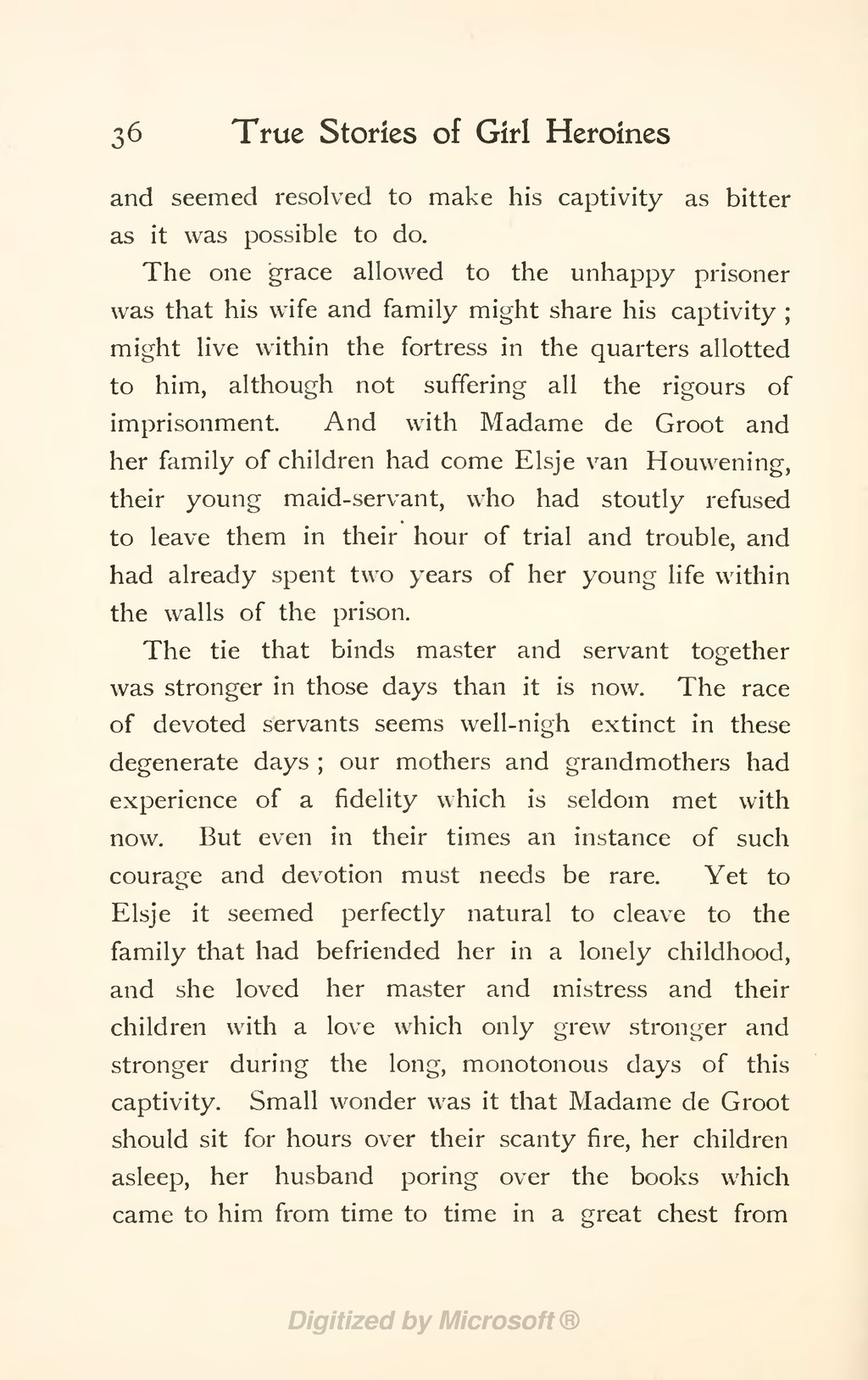and seemed resolved to make his captivity as bitter as it was possible to do.
The one grace allowed to the unhappy prisoner was that his wife and family might share his captivity; might live within the fortress in the quarters allotted to him, although not suffering all the rigours of imprisonment. And with Madame de Groot and her family of children had come Elsje van Houwening, their young maid-servant, who had stoutly refused to leave them in their hour of trial and trouble, and had already spent two years of her young life within the walls of the prison.
The tie that binds master and servant together was stronger in those days than it is now. The race of devoted servants seems well-nigh extinct in these degenerate days; our mothers and grandmothers had experience of a fidelity which is seldom met with now. But even in their times an instance of such courage and devotion must needs be rare. Yet to Elsje it seemed perfectly natural to cleave to the family that had befriended her in a lonely childhood, and she loved her master and mistress and their children with a love which only grew stronger and stronger during the long, monotonous days of this captivity. Small wonder was it that Madame de Groot should sit for hours over their scanty fire, her children asleep, her husband poring over the books which came to him from time to time in a great chest from
